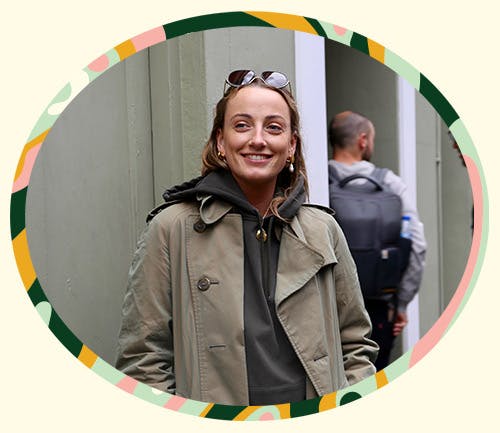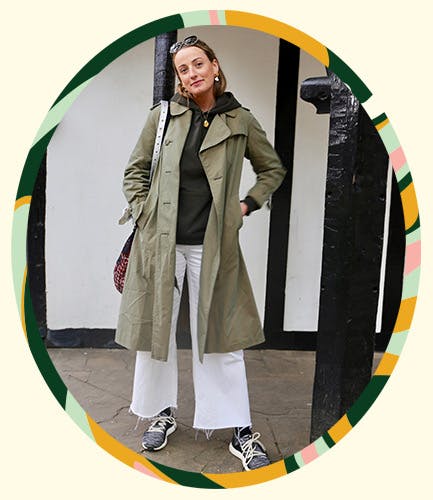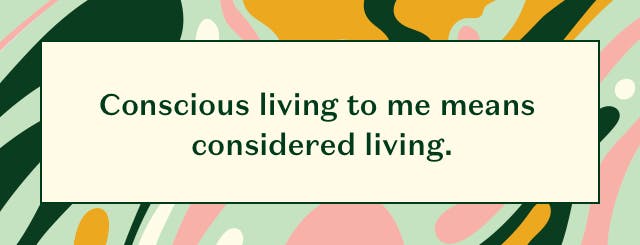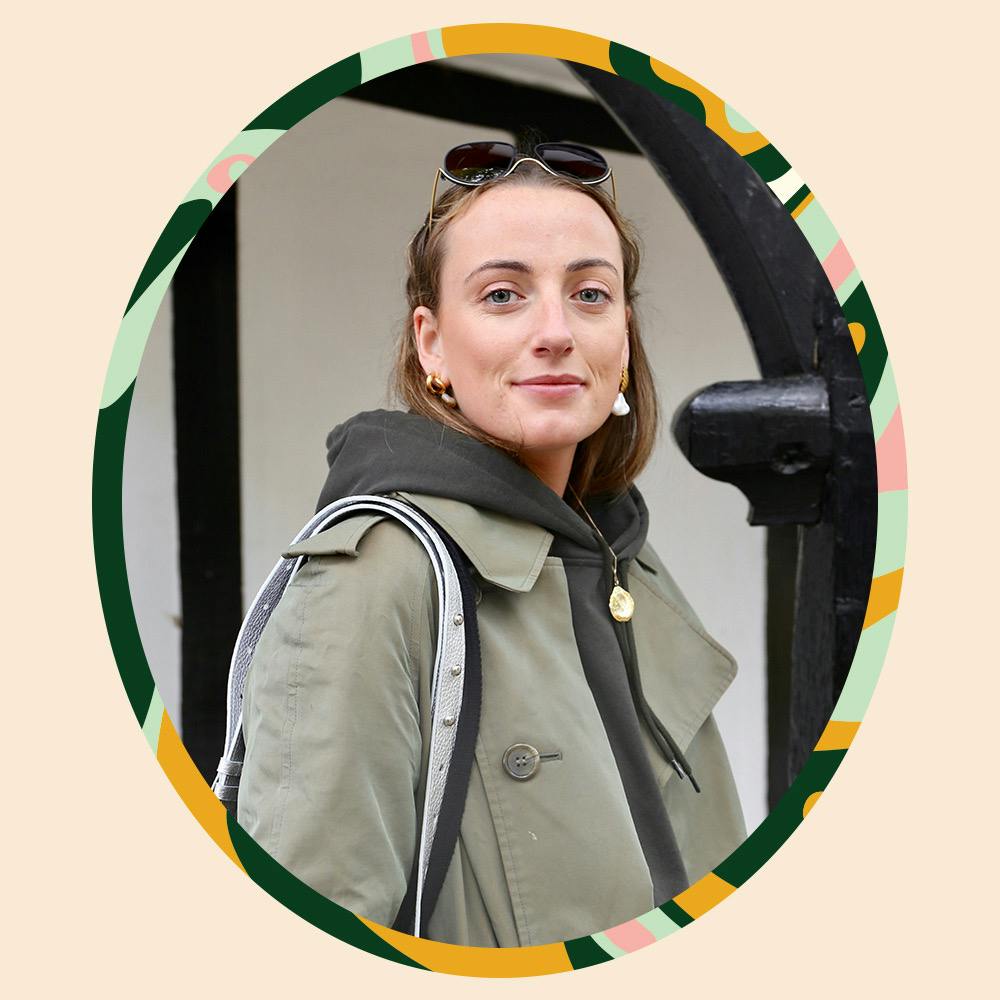Who’s heard of “eco-anxiety”? We hadn’t. Not, that is, until we came across a post from Stories Behind Things, a platform celebrating conscious and mindful consumption.
“There’s a new term on the block being thrown around called ‘Eco Anxiety,’” the caption says. “It has no official definition yet, so we thought we’d give it a shot: Individuals who worry about the environmental crisis and feel overwhelmed by the thought of environmental destruction, species crisis and pressure to reverse detrimental actions.” So that’s what we’ve been feeling.
Stories Behind Things was born out of anxiety about the state of the world we live in. Co-founder Jemma Finch, who runs the platform alongside Ella Denton, explains how the pressure to constantly consume material things was negatively impacting her mental health. On the other hand, the items that Finch had been handed down, saved up for or to which she had attached memories continued to spark joy (excuse the Marie Kondo reference). This realisation set Finch and Denton on a path to redressing their relationship with the material world, and encouraging other women to follow suit.
Today the platform is all about encouraging us to think more mindfully about the physical items we engage with. Who made that bag? Can I pass this dress on one day? Taking the time to tell stories is a grounding exercise, one that forces us to stop and consider the physical objects all around us, so we caught up with Finch to talk more about conscious and mindful consumption.

What first sparked your interest in sustainability?
Everyone’s journey is very different, but mine came from a mental health point of view. I was aware that I was struggling to cope with the everyday: the fast consumption, the busy-ness, the buy-buy-buy, the lack of care for things. I realised all of this was having an effect on how I was feeling. Then, I started to become curious about the relationship that we have with the material things around us. I noticed that I was only looking after the things that had memories, and meant something to me.
Using clothing as an example, all the pieces I bought from high street brands were the ones that were on the floor, that I hadn’t ironed, that got stuffed to the back of my cupboard. Meanwhile the ones I'd been handed down, saved up for, or had great memories in were the ones I treasured. That’s where Stories Behind Things all started. We noticed that we all have the power to cultivate healthy relationships with the objects around us, and not just clothing.
How does telling the stories behind things help us live a more sustainable life?
It develops the much-needed connection that we are all yearning for in our fast-paced, throwaway lifestyles. Thinking about why you want something and where it comes from will help us align our values with our consumption habits, hopefully slowing them down, and making them more considered. Less is more!
The platform was born out of a conversation with your friend Ella Denton about “conscious living”. What does conscious living mean to you and how does it help raise the standard of female health?
Conscious living to me means considered living. Considering what we want to welcome into our lives and why. We are constantly bombarded with advertising that is designed to make women feel like they’re good enough, and we are sick of seeing it!

It was also born out of a concern for the millennial generation’s mental health. Can you explain the connection between sustainability and mental health?
Ella and I felt disconnected to the fast-paced empty consumption habits of the industries around us, and we wanted to create a space for connection and storytelling to have a positive effect on the planet and our mental health. We believe that pressure from the media to consume has a substantial knock-on effect to women’s mental health. Since starting this platform we constantly receive feedback from women telling us how we inspire them to reconnect with the positive associations of what they interact with on a daily basis—it makes us so happy!
Do you view “sustainability” as also referring to sustainable relationships, sustainable work life balance etc.?
Sustainability is a never-ending term that has many interpretations. Of course, to have a sustainable outlook you have to look after yourself—you can’t save the world unless you are healthy and happy yourself! Sustainability definitely starts from within, building a positive connection with both humans and material things around you... then you can kick ass.

There are so many different definitions of “healthy” out there for women. What’s your definition of a healthy woman?
Healthy to me means happy and connected. A healthy woman in my eyes is connected not only to herself but to those around her.
We see health as having three pillars—physical, mental, soulful. What do you do to nurture each of those pillars on a daily basis?
For me, my soulful quota is reached and overflowing on a daily basis, with my line of work I’m always exploring and discovering stories, brands and people that are filled with meaning and it’s the best part of my job! In terms of mental, I’ve been committed to looking after my mental health for a good four years and it’s certainly been a journey. Something that’s helped me on a daily basis has ben unfollowing accounts on Instagram that don’t serve me, and creating the kind of world I want to interact within a daily basis. As for exercise, I certainly don’t do enough but try to get my daily quota of moving my body in there.
What is something that you wish they had taught you about feminine health at school?
All of it. I went to an all girls convent as a young girl and we were taught NOTHING!
What’s your relationship like with your period?
I have never suffered in terms of my period, I’ve had it very lucky as I know some people’s daily lives can be seriously affected by their cycles. I make sure I’m eating good nourishing foods during my cycle and stay away from exercise as this doesn’t serve my body during this time! Everybody is different and I think it’s important to learn how to listen to your body and what it needs.
If you could leave one message on this earth, what would it be?
That connection is everything. I want to inspire people to celebrate the meaningful stories we are interacting with every day through the objects we have around us. I want people to realise those stories can be beautiful and powerful things which are beneficial not only to the planet, but for our mental health too.






